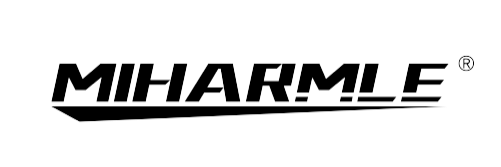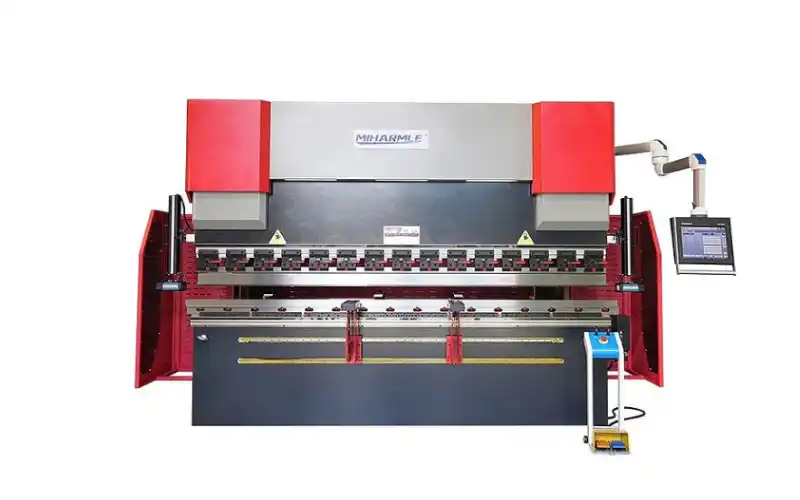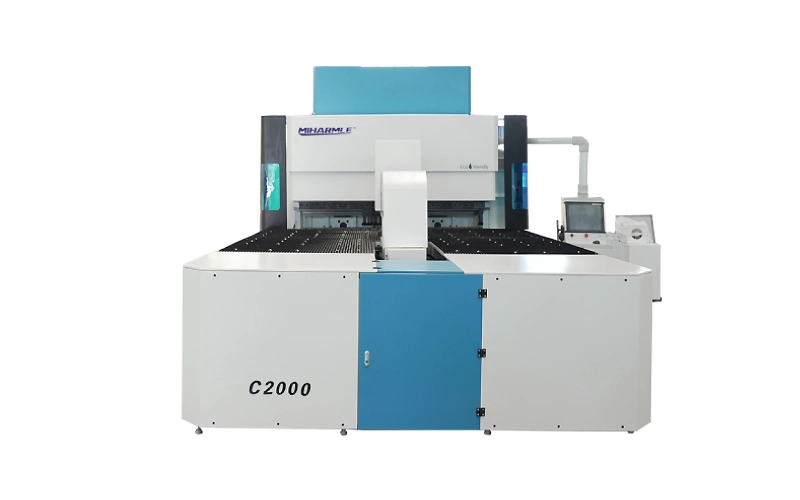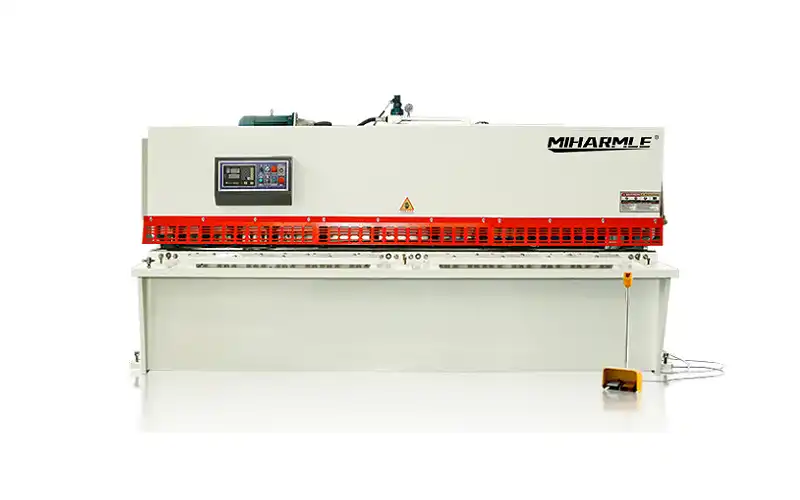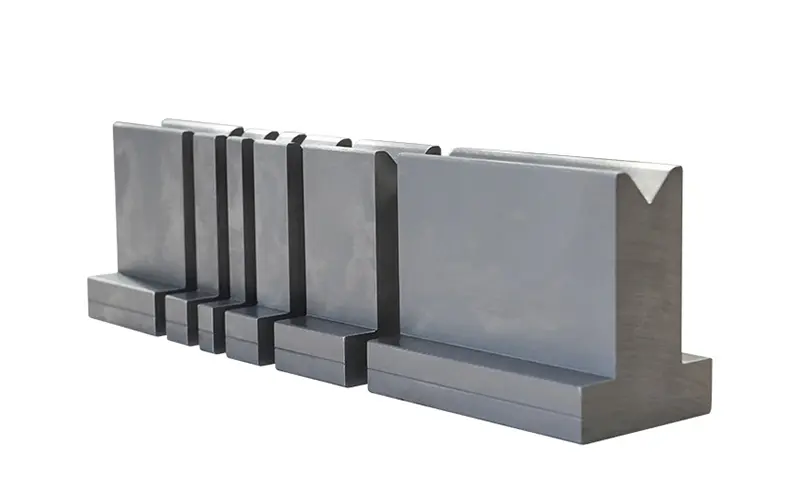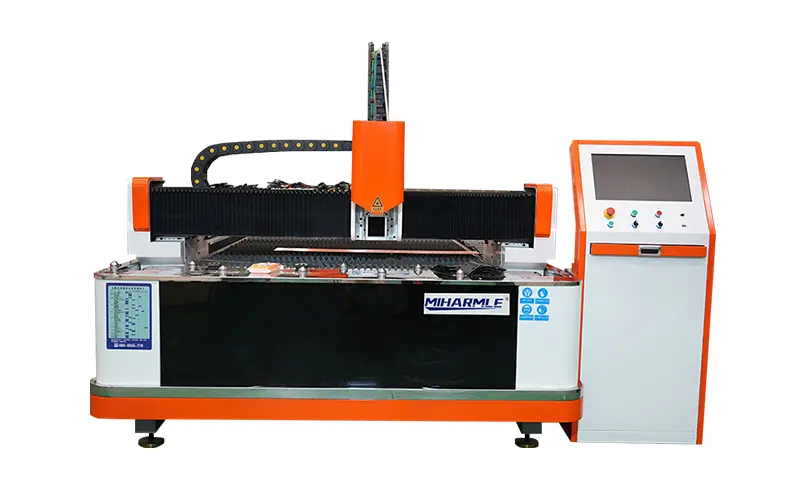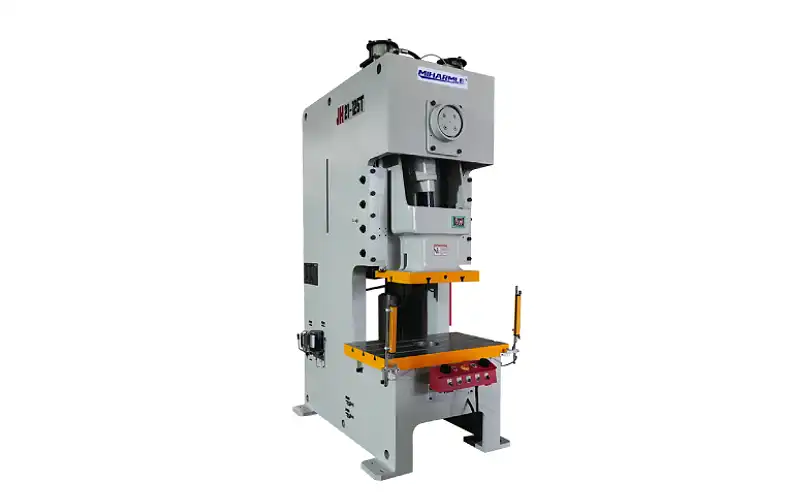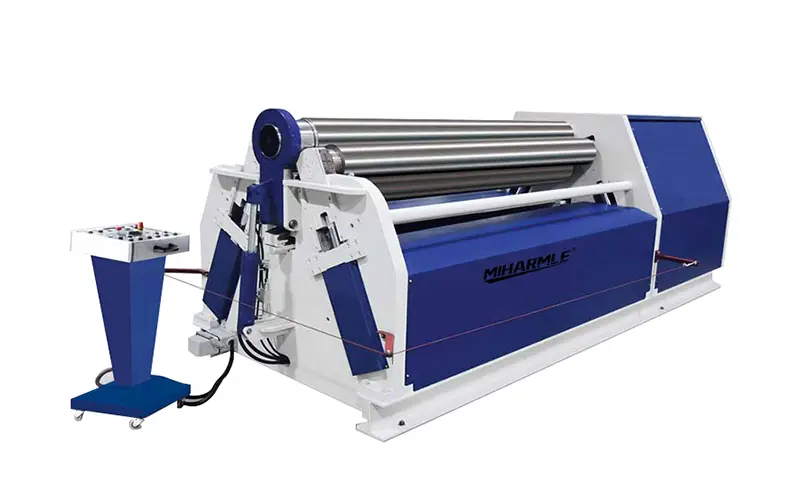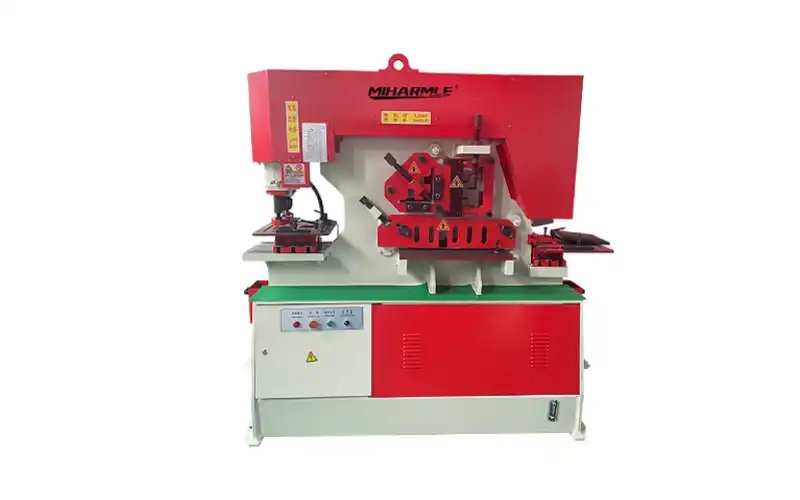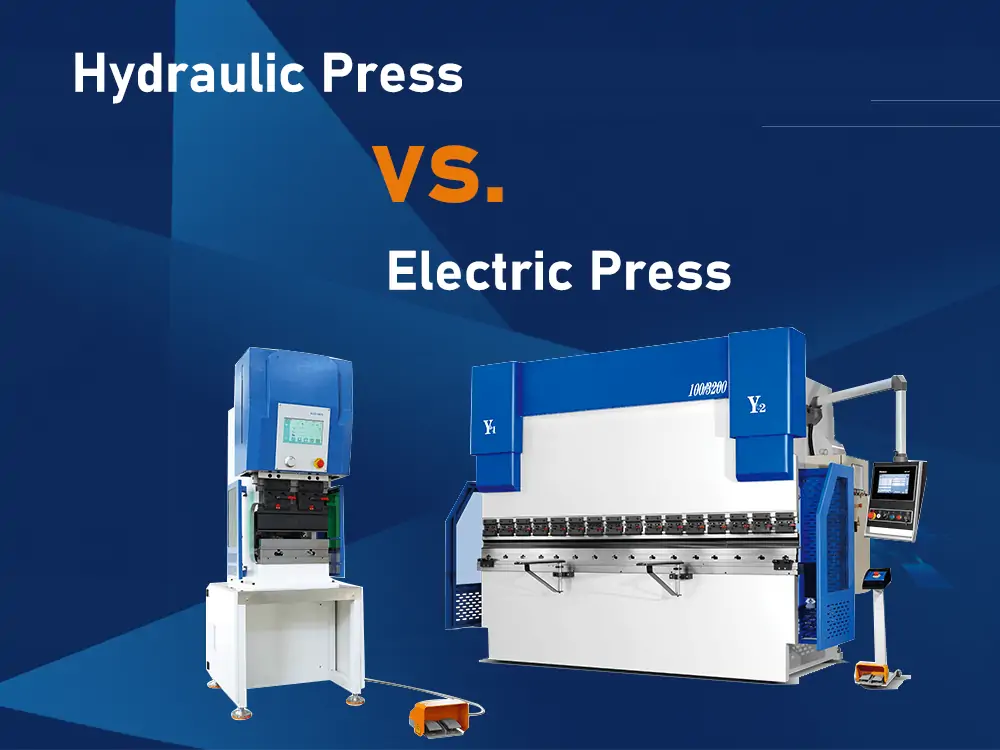
Press brake machines are a great invention. They make bending and shaping robust materials very easy. However, there are different types of press brakes available in the market. Among those, hydraulic press vs. electric press is the most discussed.
Both of these two machines are excellent. Some people consider hydraulic presses more beginner-friendly. On the contrary, some think the electric press is superior due to its quick work. So, what’s right and wrong? That can be confusing for someone aiming to buy one of these two.
However, this guide will debunk all the confusion and misconceptions. I aim to explain their working mechanism before discussing their differences. This will help you understand how they are parted. You’ll also learn their unique selling features. So, let’s get started!
Overview of Hydraulic Press
Hydraulic press machines use hydraulic cylinders, pumps, and hydraulic liquid. The pump applies force to the liquid, which puts pressure on the hydraulic cylinders. Due to this pressure, the ram moves down and presses the workpiece.
Hydraulic press machines have a long history. The first such machine was introduced in the early 1800s. However, with time, there has been improvement. Today, different hydraulic machines are available, varying in terms of their features. Some modern Hydraulic machines come with a CNC system.
Due to computerized integration, these machines are very accurate. It is believed that hydraulic machines are excellent when higher tonnage is required. They can apply exceptionally high force on the workpiece. Therefore, many people consider it ideal for heavy-duty tasks. Let’s jump into more detail and discuss their operational principle.
Operating Principles
The hydraulic press works on Pascal’s law. It states that pressure applied on confined liquids will be distributed uniformly to the whole liquid. Let me explain this in more simple words. Imagine you have a jug with half-filled oil. Now, you apply force on this confined oil.
You’ll apply pressure at one specific point. But the whole confined oil will feel uniform force or pressure. The hydraulic machine also works on this method. It consists of a hydraulic cylinder, pump, and hydraulic fluid. The pump applies force on the hydraulic oil.
The whole confined fluid feels equal and uniform pressure. As a result, the fluid will exert force on the hydraulic cylinder next to it. The hydraulic cylinder applies force on the workpiece present on the worktable. As a result, the workpiece gets bent.
As you know, press brakes use dies to change the shape of the material. The material bends and shapes according to the dies used. This is how these machines work. The pump applies extreme force to the fluid. As a result, the same intensity force goes on the cylinder. So, the tonnage of these hydraulic machines is very high.
Advantages of Hydraulic Press
There are many unique selling features of hydraulic press machines. Many people prefer it over many other high-priced machines. Here are their key attributes:
- High Tonnage: First of all, hydraulic machines are powerful. They offer exceptionally high tonnage. Keep in mind that hydraulic liquid remains confined. It faces high pressure from a hydraulic pump. So, fluid exerts the same high pressure on the hydraulic cylinder. As a result, the cylinder puts an extreme load on the workpiece.
- Versatility: The hydraulic press machines are not limited in functionality. They can be used for a variety of tasks. Those include bending, flanging, coining, etc. They are up for all kinds of needs.
- Ease of Operation: The hydraulic presses are straightforward. No complex system is involved. Even a beginner operator can easily use this bending machine. Even hydraulic machines with CNC systems are easy to operate.
- Overloading: This machine can withstand overload. You can bend even the most robust material with ease. Its performance will be the same, no matter if the workpiece is strong or weak.
Operational Limitations
Despite many goods, there are some limitations of the hydraulic press machines. These drawbacks can affect their performance. Here is the list of some limitations:
- Slow Speed: The hydraulic press machines are very slow. A simple task, when done using this machine, can take hours. This can massively impact the efficiency of your business. Even the hydraulic machines with CNC systems are not very quick. It could be challenging to meet strict deadlines using these machines.
- Energy Inefficiency: As I said, hydraulic machines work according to Pascal’s law. So, continuous energy is required to apply pressure on a confined liquid. Moreover, it takes more time to complete tasks. So, during these operational times, the hydraulic machines require energy continuously. This makes it energy inefficient.
- High Maintenance: What makes these machines less popular is their high maintenance. They have many moving parts, so issues in any one part will cause issues and increase downtime. Moreover, fluid changes after regular periods also cause headaches.
- Environmental Impact: This machine uses hydraulic oil. The pump applies force to this confined oil, causing a chance of oil leakage. This could make the workspace dirty, and you’ll have to clean the machine to remove the oil. Moreover, due to the extreme pressure applied to the oil, it emits heat. These factors make this machine less environmentally friendly.
Overview of Electric Press
The electric press machine uses an electric motor instead of a hydraulic pump. The motor is needed to drive the mechanical system. Once the motor runs, it provides rotational energy to the mechanical system. As a result, the system puts pressure and load on the workpiece.
This electric press machine is modern technology. It undoubtedly enhances productivity when it comes to bending metal. An electric motor requires energy quickly, so the machine offers a speedy output. The business can easily meet strict deadlines.
These electric press brake machines are very environmentally friendly. Their energy consumption is low. They don’t produce any annoying noise. Keep in mind that they don’t use hydraulic oil. So, the workspace remains very clean when you use this machine. Let’s go down and discuss how this machine works.
Operating Principles
The electric press works based on converting electrical energy into mechanical energy. In this machine, the electrical motor remains the primary source of power. It runs and converts electrical energy into rotational energy. This energy goes to the mechanical system of the press.
The question is: how does this rotational trainer affect the mechanical system of the press? This is done through a gearbox. This component transmits the energy to the mechanical system. In the end, this rotational energy changes into a linear force. This force goes onto the workpiece and bends it.
Keep in mind that motors behave as primary components. The machine will not work if the electric motor fails. This machine does not use any hydraulic system. Due to the use of electric motors, these machines are rapid and can work many hours continuously. The tonnage of these machines depends on the power of the electric motor.
Advantages of Electric Press Machines
The electric press brake machines are more advanced. They rely on modern technology. So, they have many features and advantages. Here is the list of their potential benefits:
- Quick Turnaround: One of the prominent features of this machine is its high speed. Electric motors provide power immediately, so the machine offers high rotational motion quickly. This rotational motion is converted into linear motion swiftly due to efficient electric motors.
- Energy Efficient: The electric press machines are 80% more energy efficient. It means that they need less energy for their process. Due to this, they also do not emit too much heat in the environment.
- Low Noise Production: The electric press machines use motors instead of hydraulic pumps. Therefore, this source of power does not produce any significant noise. It would be correct to say that these machines are very silent.
- Clean Operation: As mentioned earlier, electric press brakes don’t use any fluid. Instead, only the electric motor does the magic. Therefore, there is no issue of fluid leakage. The machine will remain clean for an extended period.
Operational Limitations
Everything made on the earth has both good and bad. These electric press machines are no exception. No doubt they are very efficient in terms of performance. However, there are some cons that you’ll have to face. Here is their list:
- Limited Tonnage: Electric press machines are compromised in terms of tonnage. They cannot put a high load on the workpiece. They usually use smaller motors. Such low motors are inexpensive, making the machine relatively affordable. So, these machines are not suitable for heavy-duty bending.
- Initial Cost: These machines are costly. Small manufacturers cannot afford them due to the high prices. You might think the machines with small motors would be low priced. No, that is not true. Despite the usage of small motors, their prices remain very high. So, these machines are suitable for established businesses.
- Fragile and Complex Structure: These machines are excellent when the material is weak. However, it does not work well when you use it to bend heavy-duty material. Moreover, these machines’ components and mechanisms are relatively more complex. Therefore, they require a specialist for their maintenance, which adds additional costs.
Hydraulic Press vs. Electric Press: A Comparative Overview
In the section above, I provided a basic overview of both machines. However, they have many differences. Are you looking to make a final decision between hydraulic and Electric Presses? This section is dedicated to you. Let’s compare these two machines and determine which is the best.
1- Performance and Efficiency
Both of these machines serve their purpose well. However, they vary in terms of efficiency. The electric press machines are rapid. They can provide you with the final output in minutes. All you have to do is put a workpiece on the worktable. That’s it, and the machine will take care of everything.
The electric press machine uses less energy, which is a big plus. On the flip side, the hydraulic press machines also have some pros. They offer high tonnage. They can easily be used for heavy-duty tasks. However, these machines could be faster and require higher energy. Moreover, they are not environmentally friendly.
So, the electric press machines are the superior option. Their quick speed indicates their better performance. On the contrary, hydraulic machines are only suitable for bending heavy-duty material. So, my vote goes to the electric press machine regarding performance and efficiency.
2- Maintenance and Durability
The maintenance of hydraulic machines is very complex. They have many moving parts, and minor wear and tear in one part results in downtime. Moreover, these machines use hydraulic fluid, so the operator must check the fluid. Its changing is necessary after a specific time.
On the other hand, electric press machines don’t have many moving components. If the motor is working, the machine will keep working. They do not require regular checks, which are necessary for hydraulic machines. But when these machines show wear and tear, they need professional mechanics.
Keep in mind that fixing the complex components of an electric press machine can be time-consuming. However, the motors show such an issue once a year. Moreover, electric motors are more durable. They last for many years if nothing accidental happens. So, it would be wise to say these machines are better.
3- Application Scenarios
Both of these machines bend materials. However, their working mechanisms vary. The hydraulic press machines are more powerful and can work with heavy-duty materials. On the other hand, the electric press machines are sensitive.
They don’t bend the material if it is solid. Using them to bend heavy-duty material would harm the machine itself. Here is the table showing their applications:
| Hydraulic Press Applications | Electric Press Applications |
| Metal Forming (bending, drawing, stamping) | Precision Assembly (bearings, bushings) |
| Forging | Component Testing |
| Powder Compaction | Crimping |
| Deep Drawing | Press-Fitting |
| Baling | Bonding |
4- Overload Risks
The hydraulic machines are very robust. They offer high tonnage and can shape any strong material. They won’t show any issues even if you use them to bend solid material. However, the electric press machines are significantly compromised in this perspective.
The power of electric press machines depends on their motor. Generally, they use small motors. So, they don’t offer high load or force (tonnage). If you aim to bend a heavy-duty material, an electric press won’t work. The motor can be damaged if forced to shape strong material.
5- Cost Analysis
The price of these machines is the most critical factor. It wouldn’t be wrong to say that it has a massive impact on our decision-making process. Electric press machines are costly, and their initial cost makes them less suitable for small manufacturers.
On the flip side, hydraulic machines are less costly. Someone who is just starting can buy one. However, its efficiency could be better. You won’t get quick speed. However, it can be a good starting point for beginners. The choice is yours. Electric press machines are worth every penny.
Conclusion
Both electric and hydraulic machines have their features. Picking one as a winner is hard. However, I have made detailed comparisons, discussing each of their aspects.
An electric press machine is a better option. It offers many perks, requiring less energy and a rapid turnaround. However, it is not ideal when it comes to bending strong material. Small manufacturers usually don’t work with heavy-duty materials.
If you have an initial investment, go with electric press machines. However, I recommend hydraulic machines if you work on heavy-duty material. They are more powerful and can easily bend even the most robust material. So, the ball is in your court. It would be best if you made decisions according to your needs.
